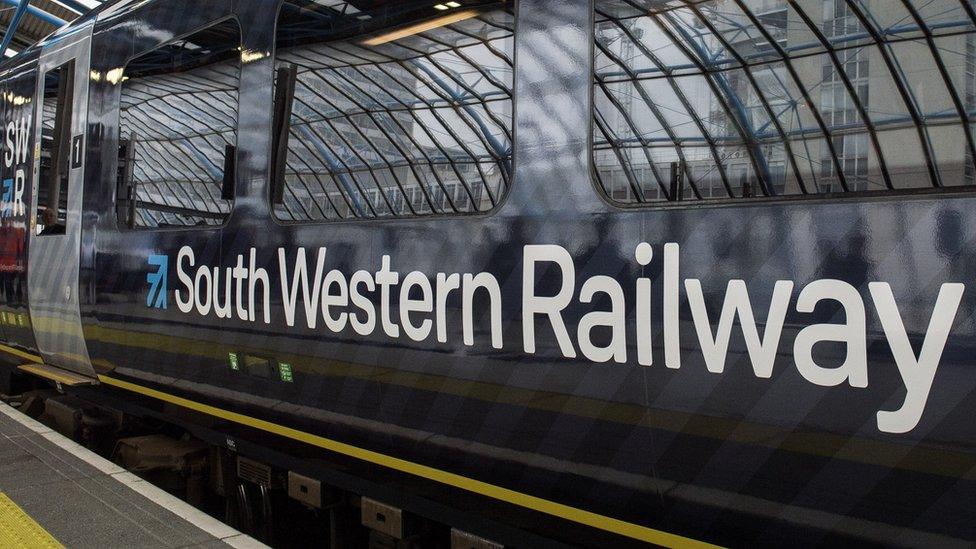South Western Railway strike: Rail union publishes plan to end guards dispute
- Published
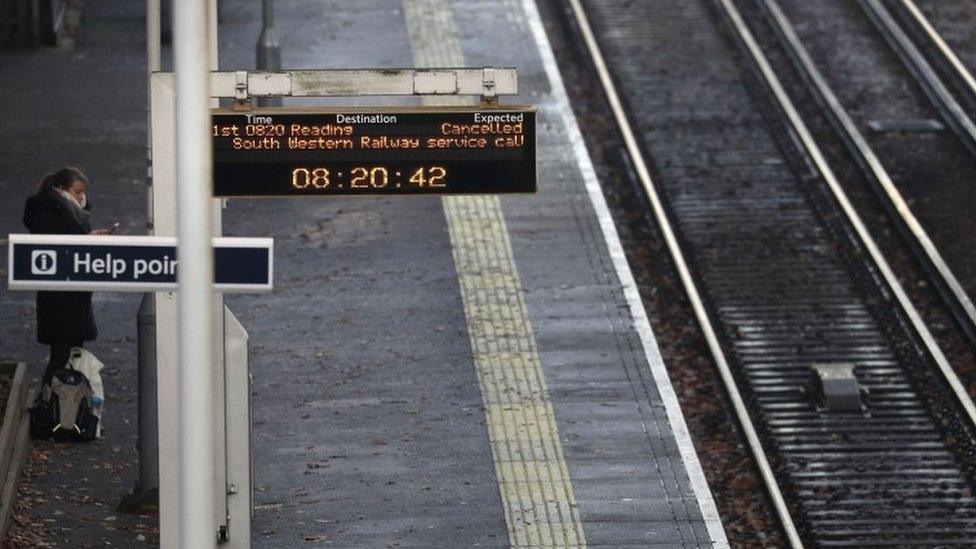
The strike means hundreds of services are being cancelled each day
The union at the centre of the dispute over guards on trains has set out six points it wants sorted to reach a deal.
Members of the Rail, Maritime and Transport (RMT) union on South Western Railway (SWR) began 27 days of strike action on Monday 2 December.
The union says the dispute now centres on, external whether guards should have a few seconds to ensure the safe despatch of trains from stations.
SWR said it welcomed RMT's ideas but said it had yet to receive the plans.
In over two years of strikes the two sides have not budged on the matter.
BBC Transport Correspondent Paul Clifton explains the background to the strikes
On new trains due to start running next year, SWR wants drivers to operate the doors at every stop to save time.
Union members want guards to decide when to close the doors.
The RMT said the plan showed "just how achievable a settlement is if the company agrees to add a few seconds to the despatch time".
RMT general secretary Mick Cash said: "We are literally three seconds away from a deal that would achieve both our objectives and the company's, and I would appeal to SWR to get out of their bunker and back into Acas with the union to bolt down a settlement."
SWR said it wanted a guard on every train, with a safety-critical role, but it wanted them to spend more time helping passengers, including those in wheelchairs and with buggies.
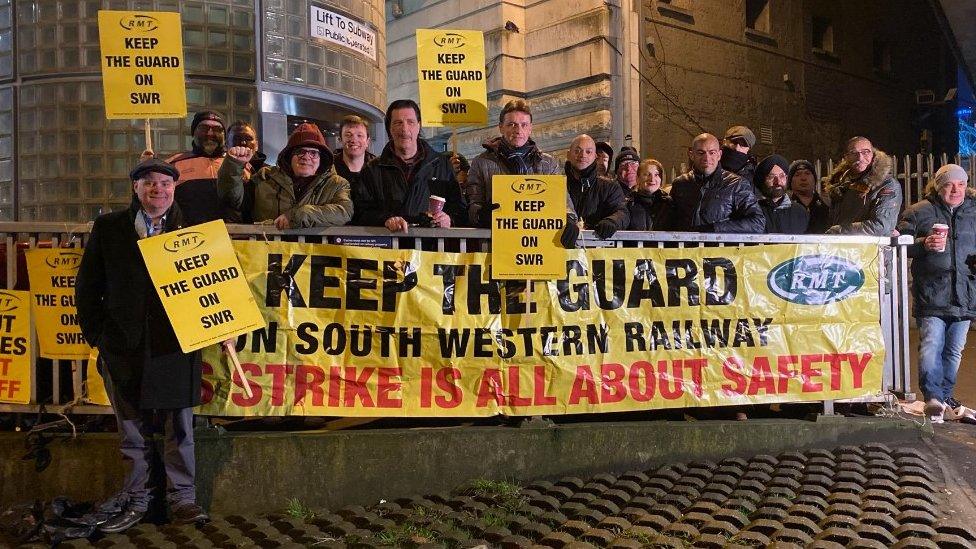
Union members have staged pickets at stations on the SWR network
In response, a SWR spokesperson said: "We actually agree with most of the RMT's points, but on a busy metro network like ours every second counts and we cannot have unnecessary and inefficient practices that increase delays for passengers.
"The best and safest way to operate the new trains we will introduce next year is with the driver closing the doors, as the industry's own safety body, the RSSB has said.
"Only by doing this can we free up guards to offer the customer assistance the RMT describes, making our trains more accessible, and providing better customer service to everyone."
At the weekend travellers on South Western Railway (SWR) faced further disruption with engineering work running alongside the strike.
The strike means hundreds of services are being cancelled each day and many commuters have complained about overcrowded trains.
The union is calling for fresh talks at the conciliation service Acas - the BBC understands a date has yet to be set.
The operator runs services between London Waterloo and Portsmouth, Southampton, Bournemouth and Weymouth as well as Reading, Exeter and Bristol. It also operates suburban commuter lines in south-west London, Surrey, Berkshire, and north-east Hampshire.
Strike days are as follows:
From 00:01 GMT on Monday 2 December until 23:59 on Wednesday 11 December
From 00:01 on Friday 13 December until 23:59 on Tuesday 24 December
From 00:01 on Friday 27 December 2019 until 23:59 on 1 January

Has your journey been affected? Email haveyoursay@bbc.co.uk, external
Please include a contact number if you are willing to speak to a BBC journalist. You can also contact us in the following ways:
WhatsApp: +44 7555 173285
Tweet: @BBC_HaveYourSay, external
Send pictures/video to yourpics@bbc.co.uk, external
Text an SMS or MMS to 61124 or +44 7624 800 100
Please read our terms of use and privacy policy
- Published7 December 2019

- Published3 December 2019
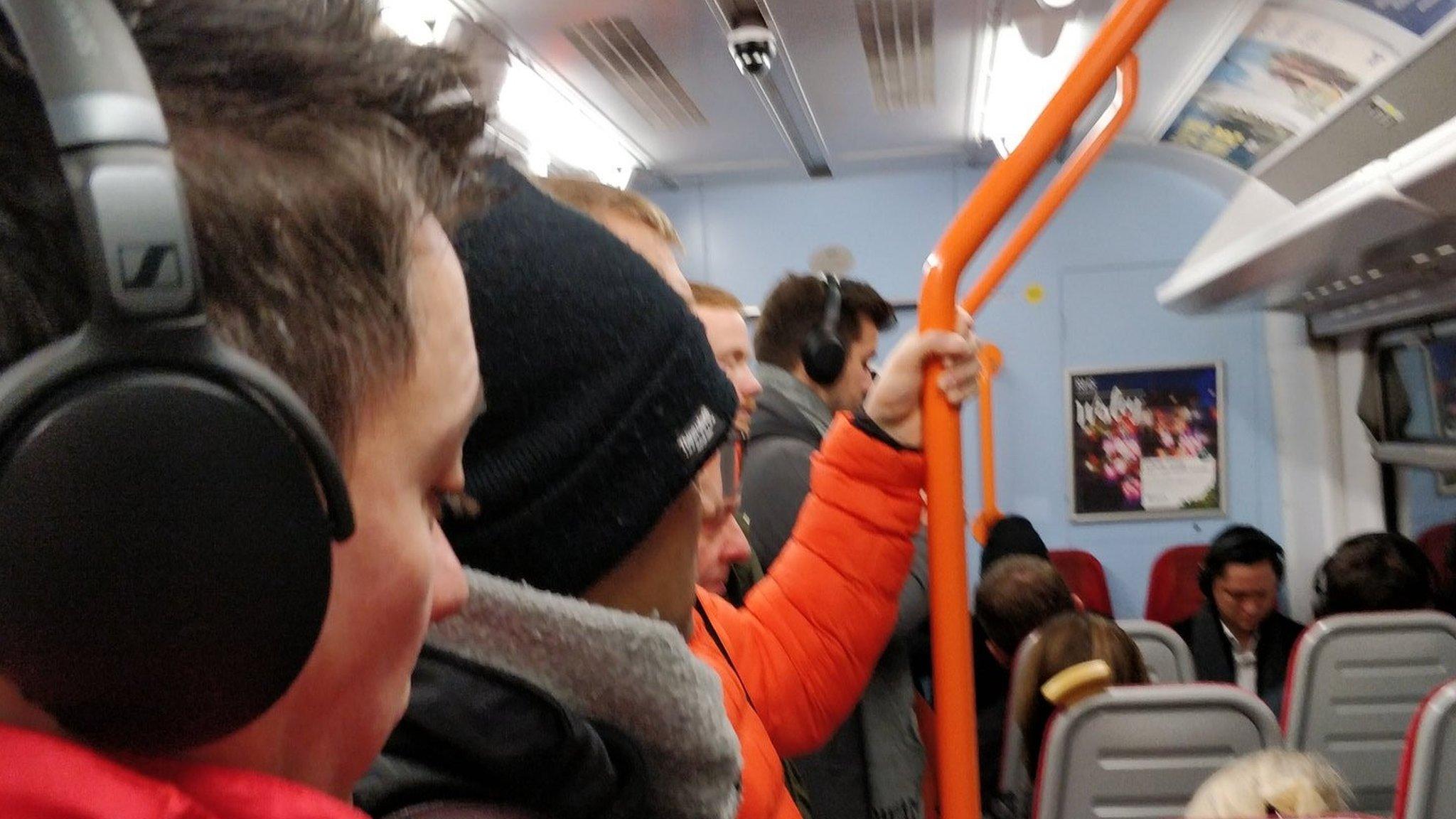
- Published2 December 2019
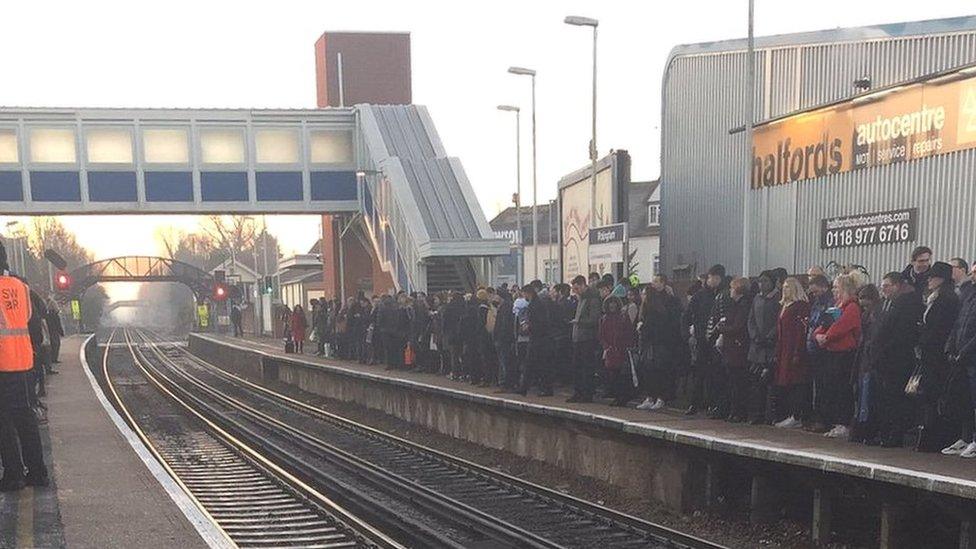
- Published2 December 2019
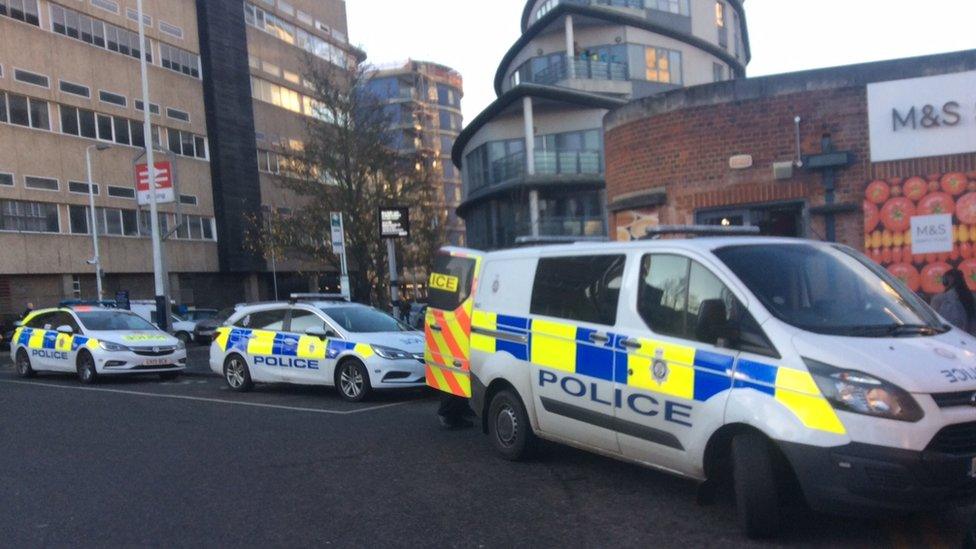
- Published29 November 2019

- Published21 November 2019
